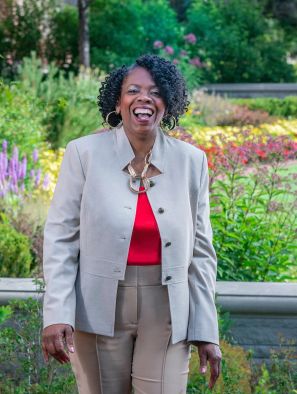DU faculty making an impact
In Academics Going Public, the authors share some suggestions for how faculty can find their public voice. Equipping faculty with tools to be able to confidently share their research and scholarship publicly is the premise behind the Public Impact Fellows (PIF) program at DU. Welcoming the third cohort this fall, the University’s PIF program began as a DU Impact 2025 pilot initiative and operates as a partnership between the Office of Research and Sponsored Programs and MarComm. The group meets regularly over the course of the academic year to learn how to best use blogs, radio, television, op-eds, and social media to disseminate their expertise.
The faculty members in this year’s cohort represent nearly every college and school. Research focused on the wellbeing of children, including access to education, mental health resources, and the importance of caregiver relationships from childhood, and Covid-related research such as the ethics of vaccine distribution represent just a sample of the areas of interest within this group.
I had an opportunity to join the first session, which was a message workshop, entitled “It’s Not What You Say, It’s What People Hear.” I listened as the group learned the basics of “defining their audience and crafting their message." The group received a primer on how public communication differs from academic communication as well as how to craft and refine a message around research and expertise, how to identify audiences and adapt messages for different groups, and how to support a particular message through stories, statistics, and sound bites.
In a previous post I talked about the incredible efforts of the many faculty that are sharing their expertise with the media, even in the midst of a worldwide pandemic. The University of Denver is fortunate to have a wide array of faculty engaged in far-reaching research—encompassing everything from research on the death penalty, to immigration, to ethical considerations regarding the distribution of coronavirus supplies. What is common is that all are focused on the public good.








